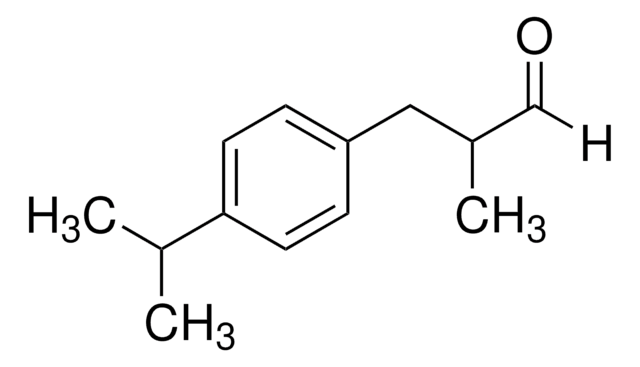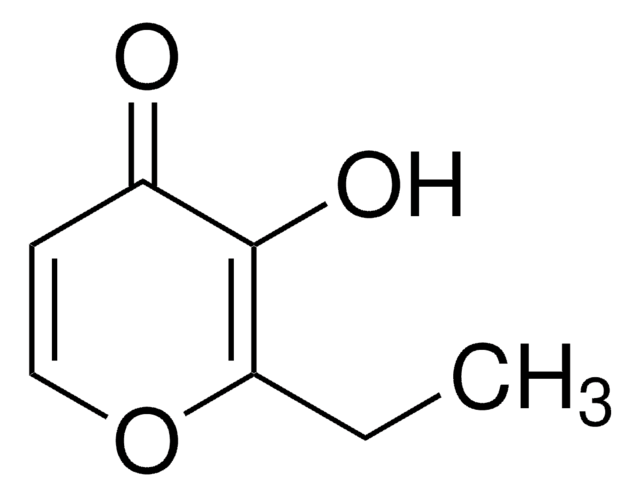W240206
trans-2-Dodecenal
≥93%, stabilized, FG
Synonyme(s) :
(E)-2-dodecenal, (E)-3-nonyl acrolein, Mandarin aldehyde
About This Item
Fragrance grade
Halal
Kosher
Produits recommandés
Source biologique
synthetic
Niveau de qualité
Qualité
FG
Fragrance grade
Halal
Kosher
Agence
follows IFRA guidelines
Conformité réglementaire
EU Regulation 1223/2009
EU Regulation 1334/2008 & 178/2002
FCC
FDA 21 CFR 117
Essai
≥93%
Contient
α-tocopherol, synthetic as stabilizer
Indice de réfraction
n20/D 1.457 (lit.)
pb
93 °C/0.5 mmHg (lit.)
Densité
0.849 g/mL at 25 °C (lit.)
Application(s)
flavors and fragrances
Documentation
see Safety & Documentation for available documents
Allergène alimentaire
no known allergens
Allergène de parfum
no known allergens
Propriétés organoleptiques
fatty; orange; citrus
Chaîne SMILES
[H]C(=O)\C([H])=C(/[H])CCCCCCCCC
InChI
1S/C12H22O/c1-2-3-4-5-6-7-8-9-10-11-12-13/h10-12H,2-9H2,1H3/b11-10+
Clé InChI
SSNZFFBDIMUILS-ZHACJKMWSA-N
Vous recherchez des produits similaires ? Visite Guide de comparaison des produits
Description générale
Application
- Investigation on the antimicrobial activities of gingers (Etlingera coccinea (Blume) S.Sakai & Nagam and Etlingera sessilanthera R.M.Sm.) endemic to Borneo.: This research evaluates the antimicrobial properties of various compounds, including trans-2-Dodecenal, found in ginger species from Borneo, demonstrating its potential as a natural antimicrobial agent (Daniel-Jambun et al., 2017).
Code de la classe de stockage
10 - Combustible liquids
Classe de danger pour l'eau (WGK)
WGK 2
Point d'éclair (°F)
235.4 °F - closed cup
Point d'éclair (°C)
113 °C - closed cup
Faites votre choix parmi les versions les plus récentes :
Déjà en possession de ce produit ?
Retrouvez la documentation relative aux produits que vous avez récemment achetés dans la Bibliothèque de documents.
Notre équipe de scientifiques dispose d'une expérience dans tous les secteurs de la recherche, notamment en sciences de la vie, science des matériaux, synthèse chimique, chromatographie, analyse et dans de nombreux autres domaines..
Contacter notre Service technique





